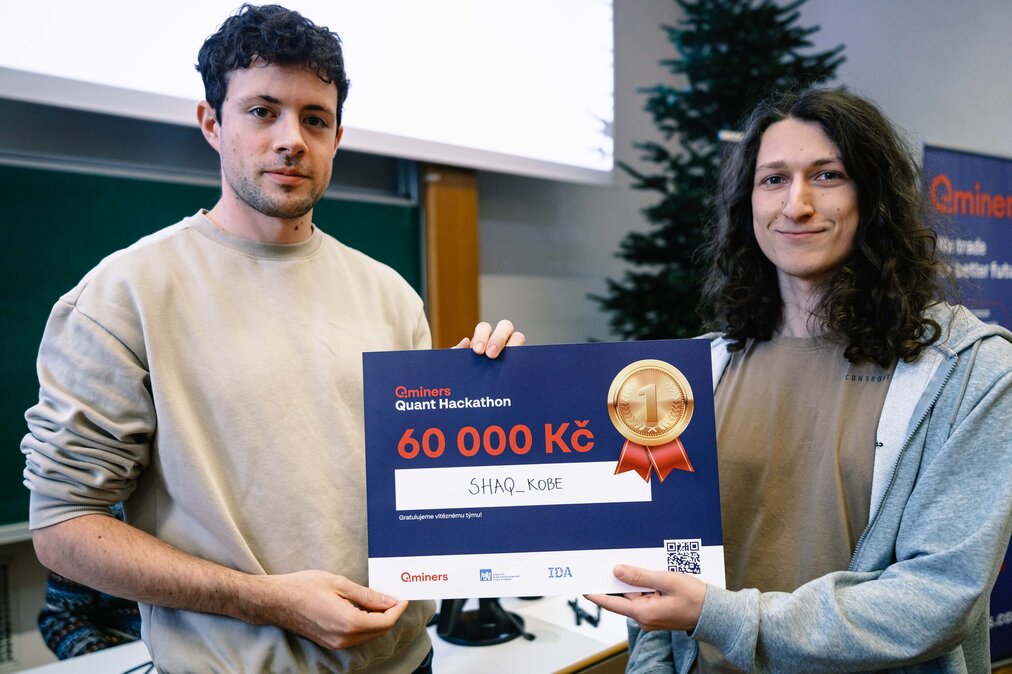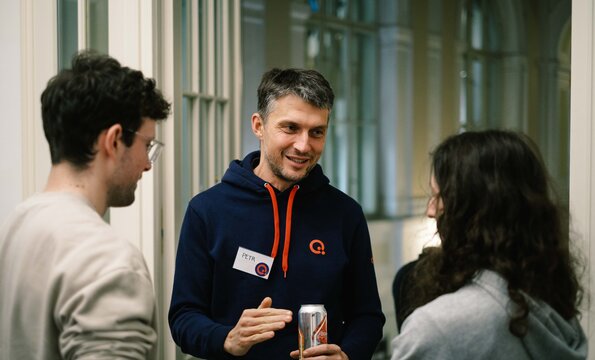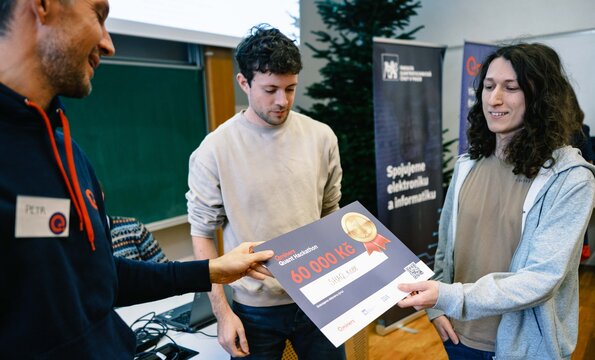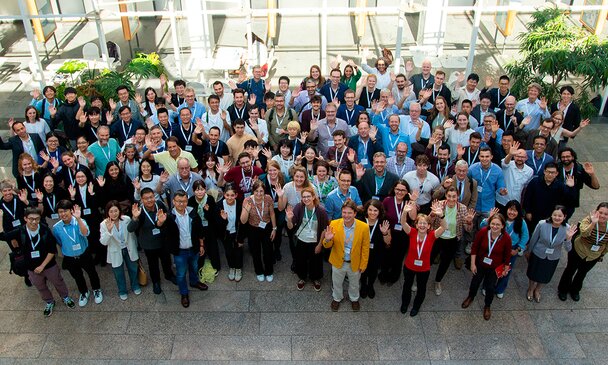
A student from the Faculty of Information Technology at CTU (FIT CTU) and a student from the Faculty of Informatics and Statistics at the University of Economics in Prague (FIS VŠE) achieved a significant success in the prestigious Qminers Quant Hackathon. This competition tasked participants with developing predictive models and betting strategies using real data from basketball games, aiming to outperform a virtual bookmaker. The hackathon attracted teams from all over the Czech Republic.
The winning team, SHAQ & KOBE, from FIT CTU and FIS VŠE, consisting of Adam Bobocký (FIT) and Vojtěch Kolomazník (FIS), won the grand prize of 60,000 CZK. During the hackathon, participants became professional sports bettors with the goal of earning as much virtual money as possible. The principle of sports betting is similar to investing in financial markets – it’s about finding discrepancies between the price and the reality, and investing where there’s an opportunity. However, the competition wasn’t about personal knowledge of the specific financial (basketball) domain, but about how to translate it into a computer algorithm. Just like on the stock market, the winner here was the one who maximized profit and minimized risk.
Participants received real data from basketball games, applied machine learning methods to it, and created a betting strategy that outperformed the virtual bookmaker. The task consisted of two main steps: creating a predictive model for game outcomes and designing an investment strategy with consideration for the bookmaker’s odds – in other words, deciding what to bet on and how much.
“In the first 21-day qualification round, we already achieved the highest score, so we entered the final round as favorites. However, the conditions changed compared to the qualification round, in that we had only one attempt. Therefore, a bit of luck also came into play – what favorable data we received and whether our strategy would take risks appropriately,” explains Adam. “Our model was based on logistic regression, which combined predictions from multiple sub-models. Each of these sub-models focused on a different aspect of information that could help predict the outcome of a basketball game. One of the sub-models was a neural network that analyzed player data. We used the same solution on the final day, but we also prepared a simple simulation of the final day for our strategy. Using it, we identified the appropriate level of risk to maximize our chance of winning first place,” he adds.
The Qminers Quant Hackathon 2024 took place on November 23 in Prague and was open to all students. The event was organized by Qminers, a company specializing in algorithmic trading, in collaboration with the IDA (Intelligent Data Analysis) research group from the Faculty of Electrical Engineering at CTU.
“The level of talent and commitment demonstrated by all participants was exceptional. The winning team really showed a lot – an ensemble of neural networks evaluating players, sensible features over teams, and a clear (and thus quickly debuggable) logistic regression,” said Petr Zahradník, CEO of Qminers.




